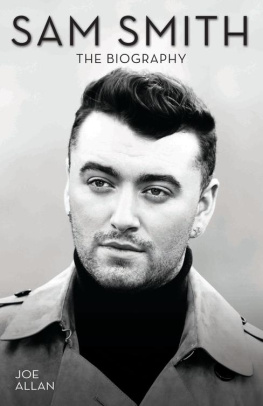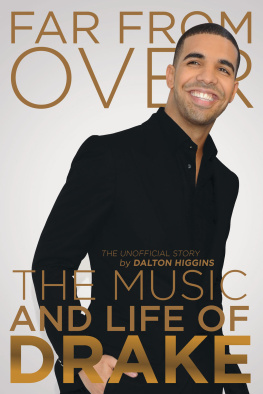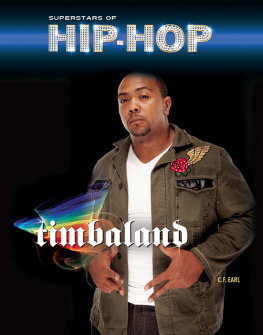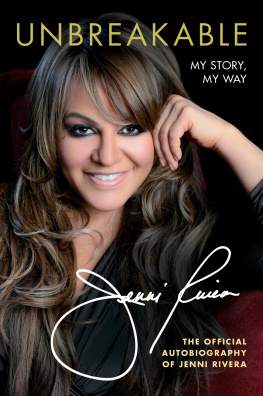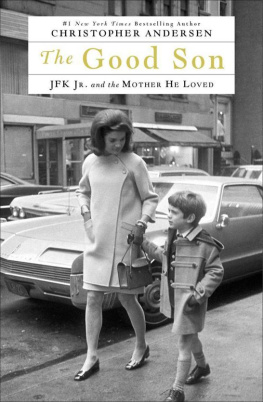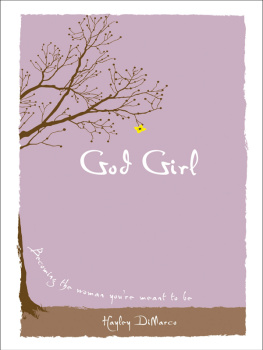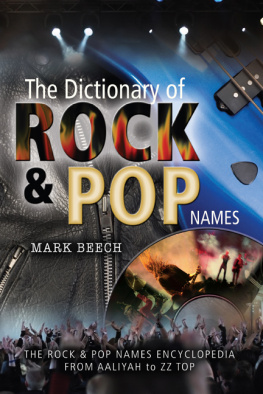Thank you for downloading this Pocket Books eBook.
Join our mailing list and get updates on new releases, deals, bonus content and other great books from Pocket Books and Simon & Schuster.
C LICK H ERE T O S IGN U P
or visit us online to sign up at
eBookNews.SimonandSchuster.com
We hope you enjoyed reading this Pocket Books eBook.
Join our mailing list and get updates on new releases, deals, bonus content and other great books from Pocket Books and Simon & Schuster.
C LICK H ERE T O S IGN U P
or visit us online to sign up at
eBookNews.SimonandSchuster.com
MORE THAN A WOMAN
In Arabic, the name Aaliyah means the highest, most exalted one; the best. And while Aaliyah was not quite a household name, to true music fans her prodigious gifts were well known. When she died in a tragic accident at the early age of 22, her loss was deeply felt. Aaliyah was one of a handful of artists pushing the boundaries of popular music and brought a whole new sonic palette to hip-hop and soul. She had street credibility and mainstream appeal; she was smart, sexy, and sensitive and a canny business-woman; she was a prodigy who grew up before our eyes into a true adult superstar.
Featuring new interviews with Aaliyahs family and friends, tributes from superstars such as Beyonc Knowles of Destinys Child, and new information about the crash investigation, MORE THAN A WOMAN is the first book to examine the young divas brief but unforgettable life.
Aaliyah had the ear and she had the voice. She knew how to pick a song and she knew how to make it hot.
M ISSY E LLIOTT
She was exquisitely beautiful and full of light and love. As an artist she was only getting better and better.
M ICHAEL R YMER , DIRECTOR OF T HE Q UEEN OF THE D AMNED
Aaliyah inspired me to keep on a musical path. She inspired me because she always experimented and tried new things. She inspired me in her passing too because, as sad as it was, it helped teach me to live life to the fullest and appreciate every day.
A LICIA K EYS
An Original Publication of POCKET BOOKS

POCKET BOOKS, a division of Simon & Schuster, Inc.
1230 Avenue of the Americas, New York, NY 10020
www.SimonandSchuster.com
Copyright 2001 by Christopher John Farley
MTV Music Television and all related titles, logos, and characters are trademarks of MTV Networks, a division of Viacom International Inc.
All rights reserved, including the right to reproduce this book or portions thereof in any form whatsoever. For information address Pocket Books, 1230 Avenue of the Americas, New York, NY 10020
ISBN: 0-7434-5566-5
ISBN: 978-0-7434-5566-4 (eBook)
POCKET and colophon are registered trademarks of Simon & Schuster, Inc.
For Mom, Dad, Anthony, Felipe, Jonathan, Lia, and Sharon
contents
introduction
I think what weve got to learn out of this is to appreciate each other while were here on earth. I love you Aaliyah, and youre forever missed.
M ISSY M ISDEMEANOR E LLIOTT
t he month after 22-year-old hip-hop/soul singer Aaliyah was killed in a plane crash in the Bahamas, some 5,000 people were murdered in the September 11th terrorist attacks. In the face of such tragedy, who is Aaliyah? Tragedies happen every day and, in a time of terror and heartbreak, they are likely to happen more often. What is the life of one promising young singer compared to the prematurely extinguished existences of the bond traders and window washers and security people who worked at the World Trade Center everyday? What is her one life balanced against the lives of the hundreds of firemen and police officers who gave their lives in an effort to help pull some of the victims from the conflagration? Who is Aaliyah in the face of all that?
I work as the music critic for TIME magazine. I talked to Aaliyah a few months before her death. I attended a small party she threw in a restaurant in New York City to celebrate the release of her third and final album, Aaliyah, and, the next day, I sat down and talked to her one-on-one. I found her to be gracious and eloquent, alluring and slightly mysterious, youthful and yet possessing a smooth solemnity that would be the envy of musicians twice her age. I think my style is street but sweet, Aaliyah told me. I thought her album, Aaliyah, was the best R&B album of 2001. I also thought Aaliyah herself was the most promising young singer around. In a pop world ruled by Britney Spears and NSync, Mandy Moore and Jessica Simpson, Aaliyah was making smart, sophisticated music that was still cool to dance to. She was a siren of subtlety, and she had a polished charm that went way deeper than ordinary pop music. She was a fine dancer and she was just branching out into acting. Aaliyah told me then: I was trained to do it all. Weeks later, when I heard the news about her death, I felt a numbing melancholy which, even as I write this, I have been unable to completely shake. I can still remember her soft smile, her dark eyes, the sheen off her long black hair, her light glide as she walked, her gentle laugh. I remember it all as clearly as the last time I saw Kurt Cobain, dressed in a faded green cardigan and holding his baby, Frances Bean, in his arms after a concert. I can remember that last image of Aaliyah as clearly as the last time I saw Tupac Shakur, filing into an MTV party with a squadron of his boys, he and his entire posse dressed in all white.
Singers die, and sometimes they die young. They have done so before, and, sadly, inevitably, they will do so again. Often they die in plane crashes. The great soul singer Otis Redding died at the age of 26 in a plane crash in Lake Monoma, near Madison, Wisconsin, in 1967. Country singer Patsy Cline died at the age of 30 in a plane crash in Camden, Tennessee in 1963. Bandleader Glenn Miller, just 40 years old, disappeared over the English Channel in 1944, perhaps shot down by German fighters. Buddy Holly, 22; J.P. Big Bopper Richardson, 28; and Ritchie Valens, 17, perished in a plane accident near Clear Lake, Iowa in 1959. They called that plane crash The Day the Music Died.
Musicians are perhaps more vulnerable to air disasters because they are always traveling. They are often on the move, from one gig to another; they are often traveling quickly and on the cheap. Such is the nature of touring, especially for young, up-and-coming acts that are just making their marks on the world of entertainment. When youre a professional athlete, even a rookie, youre part of a team and youre traveling in style; when youre a movie star, even a novice one, whatever movie youre shooting is probably only going to have a handful of locations. Musicians may play several cities a week, hundreds of gigs a year. Their shows are often in small towns and out-of-the-way places that require small planes to fly into small airports. It opens their lives up to tragedy.
When a musician dies, and the music they had yet to make dies with them, something else is born. The blues, and the suffering associated with them, are at the heart of American music; when a musician meets a tragic end, it brings out the bluesy core of the music. When we hear the music again, in the wake of catastrophe, the work suddenly seems richer, deeper, sadder. Kurt Cobain. Tupac Shakur. Selena. Jimi Hendrix. Jim Morrison. They all died young. Because of that, their music seems forever young as well, eternally bursting with an empathetic melancholy, and a mordantly attractive cool. I was in the audience when Kurt Cobain sang his punkish version of Leadbellys blues classic Where Did You Sleep Last Night? It was powerful then, but when I listened to it again after Kurts death, it had a new, sad and sublime majesty. Tragedy brings with it a kind of grandeur. In 1997, I had set up a lunchtime interview with the rapper The Notorious B.I.G. to talk to him about his forthcoming album. A few days later he was murdered in Los Angeles; the day of our appointment turned out to be the day of his funeral. His album, Life After Death, took on new resonance.



